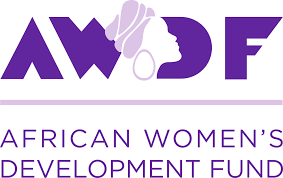Gender-Based VIolence in Isiolo
Posted on 16 August, 2023

Isiolo County in Kenya is predominantly inhabited by indigenous pastoralist communities where the treatment of women and girls, and their status in general, is mainly guided by traditional norms and practices. Women and girls in Isiolo County have faced numerous challenges related to the violation of their basic human rights and fundamental freedoms since time immemorial. Of particular interest to this project is the increasing perpetuation of different forms of gender based violence (GBV), also referred to as Violence Against Women (VAW) under this proposal. In Isiolo County, over 40% of women and girls have experienced one or other form of GBV according to a UN Women 2020 report. According to a SDG Forum Report, these cases rose by over 300% during the Covid 19 lockdown between March 2021 and its lifting in March 2021.
While the country enacted the National Policy on Prevention of and Response to Gender Based Violence2014, the Protection against Domestic Violence Act 2015 and Sexual Offenses Act 2015, all meant to provide protection and relief of GBV/VAW victims, the intended impact of these laws is null amongst pastoralist women and girls in Isiolo County. Cultural norms legitimize physical and sexual violence against women by intimate partners in marriage. In the case of girls, the retribution meted out to culprits of VAW is far from being deterrent to such violations. According to World Bank’s 2021 Assessment on Crime and Violence in Isiolo County, cases of VAW are underreported and normalized. As per this report, one government administrator in the County reported that “When a man beats his wife, its discipline. They fight and finish in the house … You have a stick for cows, women, and children!”
Female Genital Mutilation (FGM) also remains an entrenched cultural practice despite the passage of the Prohibition of Female Genital Mutilation Act 2011 and Children’s Act 2011. According to a Ministry of Health Report, about 65% of Isiolo girls aged 15–19 years annually undergo FGM compared to 12% nationally. The practice often precedes child marriage, another rampant form of GBV. Child marriage is particularly prevalent in Ngare Mara—an area that is predominantly inhabited by the Turkana— where from around the age of 15 years, a girl is regarded as a woman and is married off, even to an old man in exchange for bride price. The increase in demand for bride price has been exacerbated by the adverse effects of climate change which have depleted the economic and livelihood sources of the pastoralist communities.
Young girls who are married off shortly after FGM inevitably drop out of school and this misfortune is inadequately addressed despite clear provisions under the Education Act 2012 and the Basic Education Act 2013 aimed at protecti, ng young girls against the violation of their right to education. Different authorities have further deemed the marrying off of young girls as a form of human trafficking, a deplorable form of GBV/VAW.
Lack of access to Sexual Health and Reproductive Health (SHRH) information and services is another major form of GBV faced by women and young girls in Isiolo County. Cultural and religious rules create barriers to open dialogue and discussion on SHRH. Women and young girls who attempt to seek SHRH are normally ostracized and considered outcasts, besides being branded as sexually immoral. This in turn amounts to psychological violence. Child rearing is perceived to be the raison d’etre for the existence of pastoralist women and girls in Isiolo County, by religious and traditional decree. Women and young girls have no say as regards their SHRH, and neither do they enjoy sexual integrity, with sexual exploitation, assault, harassment and marital rape being an acceptable norm. It is no wonder that the County ranks as having one of the highest fertility rates in the Country, standing at 4.9% against the national average of 3.9%, with every 1 in 10 girls aged between 15 – 19 years giving birth each year. However, due to lack of access to SHRH information and services, the County also has one of the highest maternal mortality ratios at 790 deaths per 100,000 live births.
While the cases of GBV/VAW are notably rampant in Isiolo County, most go unreported. This is mainly due to unavailability of effectively responsive mechanisms for the victims of VAW, tolerance of the vice by security agents, corruption by perpetuators who buy their way to freedom, insufficient traditional reprieve mechanisms which treat such violations as minor demeanors, and lack of adequate information by women and girls on their rights and fundamental freedoms against GBV/VAW. Avenues available for redress by women and young girls who fall victim to GBV/VAW are also unknown or inaccessible.
While numerous laws have been enacted to deter GBV/VAW, the implementation of the provisions of these legislations has been wanting, particularly in Isiolo County which has one of the highest reported cases of GBV/VAW, way above the 40% national rate. For instance, while the Isiolo County Government recently passed the Gender Policy 2021-2025 under which it commits to eliminate all forms of Sexual Gender-Based Violence (SGBV), it is yet to implement the 10 policy actions outlined, to actualize this commitment. No action plans, timelines or resource requirements are provided to ensure the realization of the set actions either. In addition, little, if any, civic awareness and education amongst community members has been done and thus few women and young girls have knowledge and information on mechanisms available under the Gender Policy for their protection and relief from GBV/VAW. Similarly, in 2021, Kenya committed to end GBV including Sexual Violence by 2026 through 12 key measures. Little notable progress has been made to implement any of these measures to date.